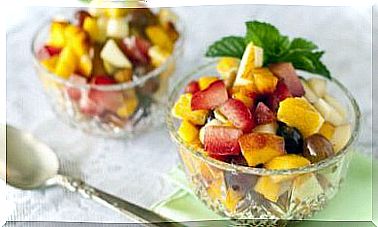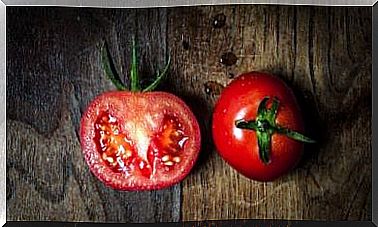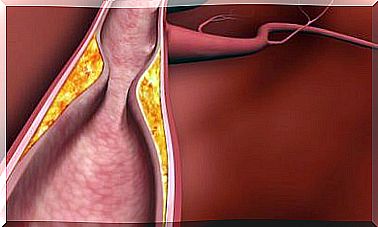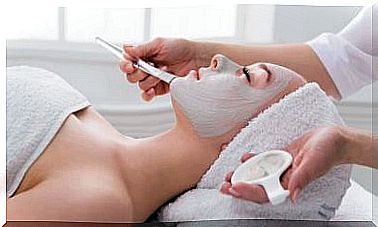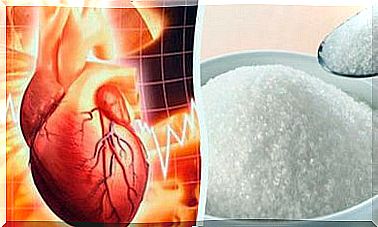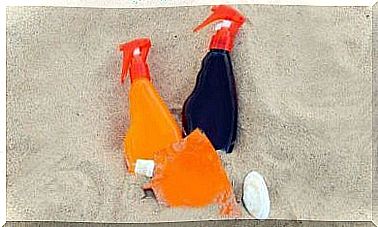Is It Bad To Eat Flour-based Foods At Night?
It is often said that “what is eaten is stored in the body”. This statement is based on the idea that, after dinner, we go to bed and the body is unable to eliminate food. Therefore, one might think that it is bad to eat flour at night.
In this article we tell whether or not this hypothesis is true.
Food and hormones
Before talking about nighttime consumption of flour, understand how hormones work and what role they play in everyday life.
Those who suffer from obesity tend to eat out of anxiety or addiction rather than hunger. This is due to the secretion of serotonin.
Among the functions of this hormone are to regulate appetite, control body temperature and regulate perceptual functions.
Serotonin is controlled by two areas of the brain: the pineal gland and the hypothalamus. Both regions “work” with respect to light and dark.
Hence, it is a hormone that is most active during daylight hours. Starting in the afternoon, it falls and can cause not only depression or nervousness, but also anxiety.
This means that at night you are more likely to be attracted to food than in the morning.
But that doesn’t end there, as the hormone “chooses” which foods it prefers to consume. Of course, do not opt for healthy foods such as fruits or vegetables, but for sweets, carbohydrates, fats and salty foods.
Flour and depression
Many people with overweight or obesity problems suffer from anxiety by eating foods with flour or sugars (or both) to alleviate their distress.
Although these foods have antidepressant and sedative effects, they are also very harmful to health, especially if consumed at night.
Sadness or frustration go hand in hand with the uncontrolled need to eat flour. The consumption of refined carbohydrates causes weight gain and difficulties in losing pounds.
Eating flour at night is not “bad”. The problem is in the quantities and in the fact that after consumption we go to bed and do not do any physical activity that allows us to reduce the added calories.
Due to the fact that, in addition, this ingredient is slow to digest, it can cause stomach or intestinal problems (acidity, flatulence, constipation, etc).
Another issue is the addiction generated by foods that contain flour.
When we feel anxious about eating, we end up choosing pasta, bread, cookies… because they have the ability to satiate the appetite, but mainly to reduce nervousness or sadness.
Eliminating carbohydrates from your diet is not a good idea, but it is recommended to reduce the amounts consumed at night.
For breakfast or lunch they are necessary, as they give you the energy to perform the activities and we “burn” them as the hours go by.
This doesn’t happen at dinner because we don’t need fuel to sleep.
On the contrary, we need easily digestible foods like vegetables or fruits. This way, we will lie down lighter and it will be easier to rest and not gain weight.
How to avoid anxiety about eating flour?
In theory everything is beautiful, but when we want to put it into practice it is not so much.
There are some “tricks” to reduce anxiety about eating anything and avoid heavy food at night.
In this way, the flours will not be part of the dinner and you will be able to gradually lose weight:
1. Exercise
Sport helps in many aspects such as fitness and weight reduction.
In addition, it acts as a mood booster: with half an hour a day of moderate exercise you will control anxiety, stress and depression.
2. Eat more fruit
Always having a fruit basket at hand is one of the secrets to not being tempted with flour or sweets.
- These foods keep blood sugar levels stable and satisfy your appetite. In addition to offering a lot of water, fiber and vitamins.
Next time you want to eat chocolate, opt for a delicious apple or a banana.
3. Drink lots of water
Sometimes we confuse hunger with thirst and, instead of drinking liquids, we open the fridge and eat anything.
On the other hand, if we stay hydrated, anxiety is less likely to attack.
4. Listen to your body
It is one thing for a stomach to rumble from hunger and quite another to eat anything out of sheer anxiety.
A good way to differentiate these sensations is to analyze what you want to consume.
- If the first answer is a biscuit or chips, then it’s not about appetite. If so, I could consume any food without distinction.
5. Leave free space in the stomach
Being stuffed with food during dinner is really bad for your health.
We tend to abuse the quantities because we don’t measure or because we eat too fast and the stomach doesn’t have time to “notice” that it was satisfied.
Chew each mouthful well and leave space between dishes.
